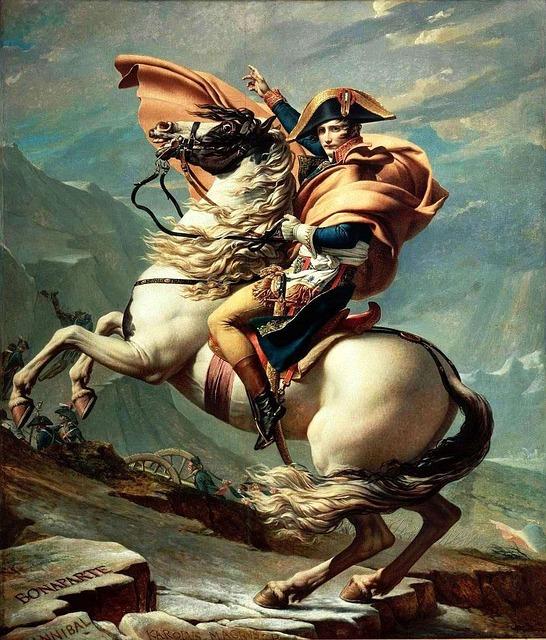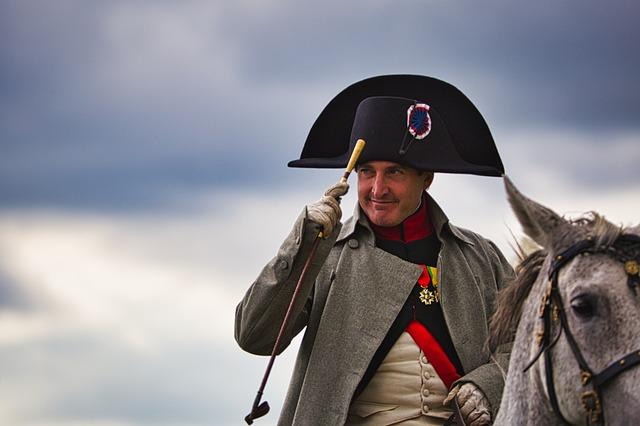
Napoleon Bonaparte, born Napoleone Buonaparte on 15 August 1769, was a French military and political leader who became well-known during the French Revolution.
He led many successful campaigns during the Revolutionary Wars.
He served as the de facto leader of the French Republic from 1799 to 1804, and was then Emperor of the French from 1804 until 1814 and again during a brief period in 1815.
He is considered one of history’s most brilliant military commanders.
Napoleon’s political and cultural influence is still felt in the 21st century, and he is widely regarded as one of the most significant leaders in world history.
How was Napoleon defeated?
Napoleon’s downfall was primarily due to the overextension of his military forces and a lack of support from allies.
In 1812, Napoleon’s disastrous invasion of Russia led to the loss of thousands of troops and a significant depletion of resources.
This, combined with his defeat at the Battle of Leipzig in 1813, resulted in a dwindling of both his army and support from allies. These setbacks ultimately led to Napoleon’s abdication as Emperor in April 1814.
While there were several contributing factors to Napoleon’s defeat, these were the most significant in his eventual downfall.
- Read also: How Did Cleopatra Die
- Read also: Jack Daniels – The History of One of The Popular Whiskey Brands
How did Napoleon die?
Napoleon Bonaparte, one of the most esteemed military leaders in history, died on May 5th, 1821, after a short battle with stomach pain.
It is hypothesized that either stomach cancer or a stomach ulcer was the cause of death, though no autopsy was performed to verify this.
There were also no traces of arsenic found in his system, despite many people speculating that he may have been poisoned.
A grand funeral service was held for Napoleon on May 9th, 1821, before he was buried on a hillside overlooking the sea on Saint Helena.
In 1840, his remains were returned to France and given a state funeral in Paris before being laid to rest at Les Invalides alongside other French military leaders.
Though the official cause of death Napoleon is still unknown, his legacy as one of the most significant military minds in history is certain.

Why did Napoleon hide his hand?
It is commonly believed that Napoleon suffered from a condition known as phocomelia, which caused his right hand to be significantly underdeveloped and deformed.
He often kept it hidden in public or held objects with his left hand, leading to speculation about the true cause of his disability.
Some theorists have suggested that he may have been born with this condition, while others believe it may have been caused by lead poisoning as a result of his exposure to gunpowder during battles.
Whatever the true cause, Napoleon was able to overcome this physical handicap and become one of history’s most successful military leaders.
In addition to his hand, Napoleon also suffered from a number of medical issues throughout his life, including chronic stomach pain, skin lesions, and headaches.
He also reportedly had a propensity for excessive snacking and overeating, leading many to believe that he may have died from complications related to his weight and poor diet.
What were Napoleon’s last words?
According to his doctor, Napoleon’s last words were, “France, armée, tête d’armée, Joséphine” (France, army, head of the army, Josephine).
He was referring to his beloved wife and the country he had dedicated his life to leading.
In other accounts, he purportedly said, “Josephine,” “France,” and “This hurts.” He may have also said, “I die before my time, killed by the English oligarchy and its hired assassins.”
These words reflect his ongoing belief in his own greatness and innocence, as well as his resentment towards those who had ultimately defeated him.
- Read also: What Caused Beethoven’s Deafness
- Read also: How Many U.S. Presidents Have Been Assassinated
Final words
Napoleon Bonaparte, the famous French military leader, and emperor died on May 5, 1821, on the island of Saint Helena in the South Atlantic Ocean.
The cause of death was most likely stomach cancer.
Napoleon was only 51 years old at the time of his death. He had been in exile in Saint Helena since 1815 when he was defeated at the Battle of Waterloo.
During his lifetime, Napoleon was one of the most controversial and polarizing figures in world history.
He was revered by many as a great military commander and a visionary leader who reformed the French government and legal system.
However, he was also reviled by many as a dictator who plunged Europe into a series of devastating wars.
Regardless of one’s opinion of Napoleon, there is no denying that he was one of the most influential and significant figures of the 19th century.



